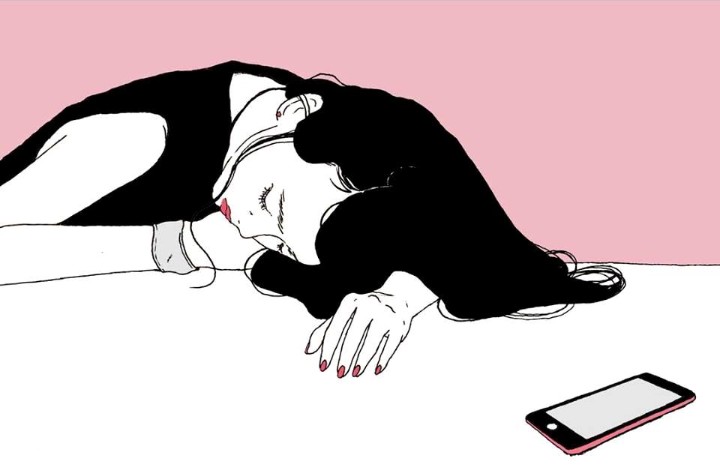How many times has this happened to you. It’s your down time. You find a moment for yourself to relax and take a pause from a busy day. So you open social media to entertain yourself a bit, maybe find funny videos of dogs doing silly things. But boom. There it is, the first post you see on your news feed is a lengthy, angsty, with matching capslock-cos-intense letters or too-personal details you didn’t need (or want) to know.
If you have a social media account, no matter if it’s Facebook, Twitter, Instagram, or wherever, you’ve probably come across this type of posts at least once. I want to know: what do you do? How do you react to the post? How does it make you feel?

Image: Facebook.com/maegamimami
Personally—and I’m only speaking for myself here; I’m not saying this is what people should do—I hide those posts. I don’t like unnecessary drama and negativity on my timeline. Life is already hard enough. There’s already too much bad news from around the world. I don’t want to be made aware of other people’s personal dramas, too. It’s too depressing. Or perhaps that’s just me, as I’m a bit of an empath, and can easily absorb other people’s bad juju even when they’re not mine to carry. So yes. Hide, hide, hide. And if they still post too much of those, I eventually unfollow. Not unfriend (I mean, there’s no need to burn bridges) — just unfollow so I don’t have to see their negativity on my news feed anymore.
But I want to know. Is it just me? Am I overreacting? How do you feel about it?
The age of social media and “freedom of speech”
I’ve once seen a very angry post online from a person who was obviously mad at someone. It wasn’t even passive aggressive at all—I could feel her yelling at the screen, perhaps hoping that person she was mad at would read her post and know it was directed to her. But that’s the thing. It’s not just directed towards that other person. It was directed to me, to all her online friends, and to everyone who’s ever seen that post. I felt her rage. Like she wasn’t just yelling at the person who had wronged her, she was yelling at everyone on her friends’ list. It made me cringe, and honestly feel a bit embarrassed for her.
My mom had also told me before about a Facebook friend of hers, who had a habit of airing her family’s dirty laundry on social media. She told me the contents of that person’s status posts. They were really bad. Infidelities, family drama, the legit soap opera material type. The kind that goes beyond personal expression of frustrations to an actual exposé. My mom said rant posts like that irked her, so I taught her how to unfollow people.
These are just some examples (I know we’ve all seen so many), but encounters like these ones made me think about that thin line between self-expression and airing dirty laundry. Or worse, to deliberately insult or besmirch someone.
But some might argue: well, your page, your rules. You should be able to post freely on your own wall. You want to express your anger, your frustrations, your hurt. That’s your right. And it makes it easier too for people who actually care for you to reach out to you. And we all need that support sometimes.
That’s the great thing about social media and the internet, after all — everyone’s voice can now be easily heard.
Everyone now has a platform to speak out their opinions and tell their stories. But the same greatness of it can sometimes be its very weakness, too. With everyone having that power right under their fingertips, it’s so easy to press the “post” button without thinking twice. It’s so easy to spread good news and turn unknowing good samaritans into overnight sensations, but in that regard it’s so easy to spread hate and malicious stories as well, even when we have no facts to prove for it, or even if it hurts someone in truly degrading and permanent ways. Everyone is suddenly easily found guilty. It’s so easy to spread negativity. It’s so easy to spread hate.
The bottomline
In the end, I know that we can’t avoid this altogether; we’ll always see angry or hateful rants here and there, but perhaps there is a way we could be more responsible about it. As mentioned, although there’s a fine line, there’s still a difference between voicing out about having a bad day and using social media as a tool to insult or fight with people. I guess the bottomline is that—figuring out the intention. Why do you need to do this? So perhaps before you post a ~rant~ on social media, ask yourself this: are you posting just to express your emotions and blow off steam, or is it something more than that?
Besides, if you constantly feel the need to post angry statuses on social media, maybe that’s a sign it’s time to do something about the issues you’re going through, instead of just repeatedly ranting about it. 😉
How do YOU feel about this topic? We’d love to hear your thoughts. Speak out in the comments!




